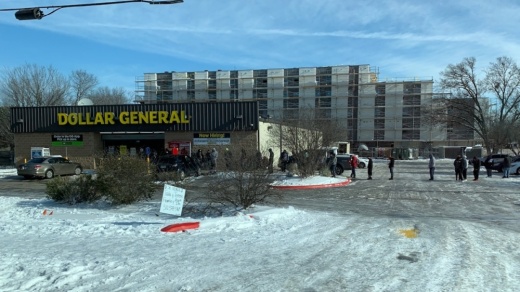The published findings, called "The Winter Storm Uri After-Action Reports", are an analysis of 100-plus documents, plans, surveys and staff interviews, and contain 132 recommendations to improve preparations for future weather emergencies and prevent many of the impacts seen during Winter Storm Uri.
According to the reports, the storms caused $195 billion in damages across Texas with 2,449 calls to Austin Fire Department reporting broken pipes, 1,500 emergency water shutoffs for city water customers and 739 traffic crashed responded to the AFD. The city's Utility Customer Care Center received more than 100,000 calls regarding power outages while the state's electric grid struggled to meet electric demand, and a boil-water notice persisted for seven days as Austin Water's distribution system lost pressure.
“Both county and city staff worked tirelessly during the storm. Still, there are many lessons to learn so, in the future, we better recognize, support and institutionalize the important and necessary grassroots aspect of our community’s emergency response," Austin Mayor Steve Adler said in a statement.
The city and county also identified a list of "key recommendations" to focus on moving forward. They include but are not limited to:
- revamping emergency planning to anticipate "multiple hazard events with cascading impacts and infrastructure failure";
- considering the possibility of adding "resilient water infrastructure" for hospitals and local government facilities;
- identifying durable emergency shelters with adequate heating, water and other utilities;
- developing an emergency feeding plan to distribute shelf-stable food to community members in need; and
- upgrading the city and county's emergency transportation fleet, providing access to emergency transportation and improving roadway safety during icy conditions.
"City and county staff responded to hundreds of traffic crashes, distributed food and water, and mobilized temporary and longer-term shelter for hundreds of people seeking safe haven from the storm. Our community partners also played an important role during these critical events to help people in need, and we are thankful for their efforts," City Manager Spencer Cronk said in a news release.
With winter coming soon, the city and county also urged residents to make their own preparations by building emergency kits with enough food, water, batteries and first aid supplies to last at least a week. Residents can also reference www.readycentraltexas.org for more recommendations.
The after-action reports will be discussed in greater detail at a City Council meeting Nov. 4 and at a Travis County Commissioners Court meeting in the future. Community Impact Newspaper will update this story following the meetings.





